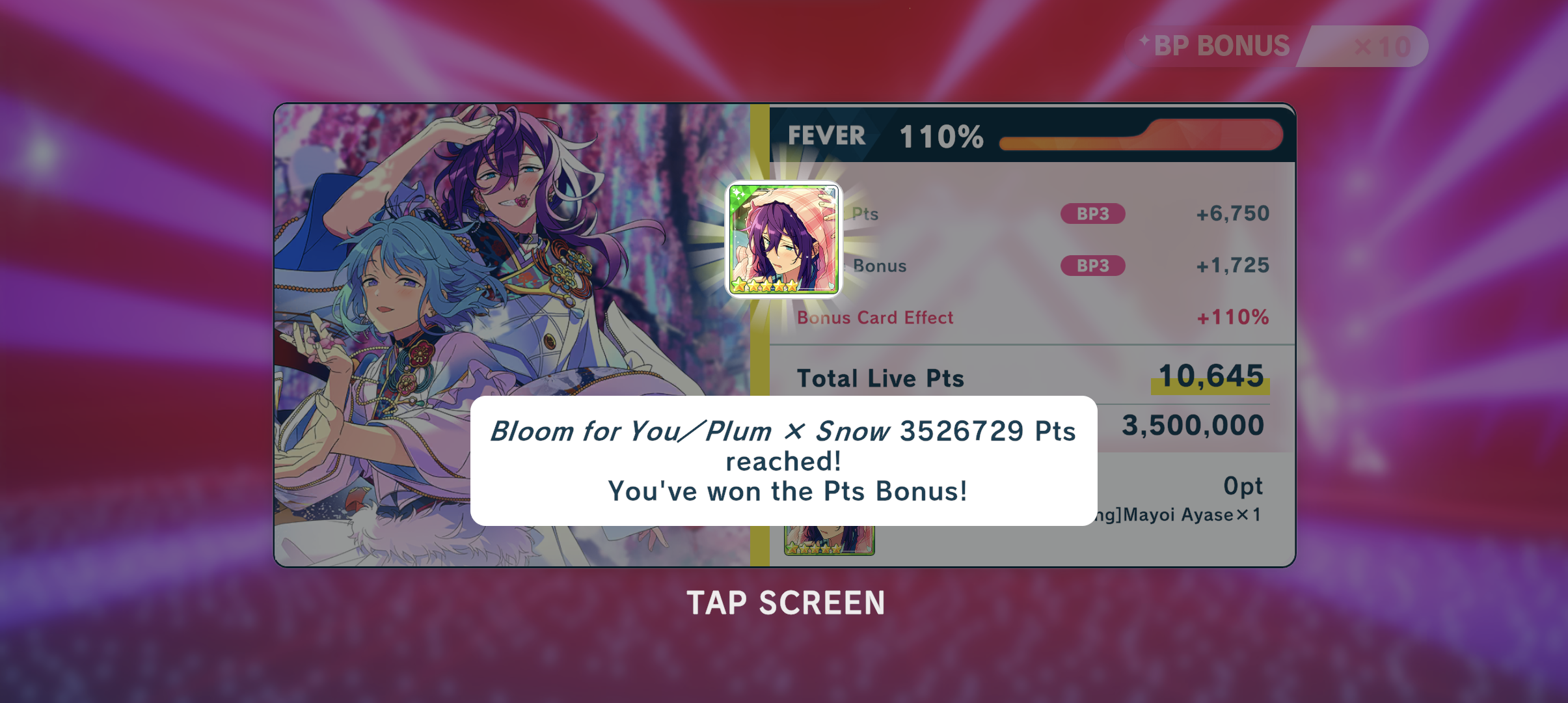
Today, Liz stayed home for a much needed mental health day. We ended up playing some more Katamari Damacy - technically Once Upon A KATAMARI but I just kinda think of them as all one big fun thing - and did some light cleaning in the living room & dining room before napping on the couch. All in all, very restful (for me at least, and I think Liz as well) :D
And then after Pat got home from work, Liz made a very tasty dinner of pork loin and roasted baby red potatoes. It was so good *w* We used to get pre-marinated pork loins from just the regular grocery store, but Lidl has them now for way less, and they're easily just as good. So that's good to know!!
Since we'd gotten started earlier, Liz, Pat, and I did some more cleaning after dinner. We got the Christmas tree taken down, took a bunch of crafting supplies back up to the third floor, and organized the stuff we're keeping down here. The basement still needs to be fully sanitized after the waste pipe burst last month, so all the Christmas stuff is still upstairs, but at least it's now condensed down into boxes.
BUT IT'S LOOKING SOOOOOO GOOD DOWNSTAIRS!!!!!!!!!!!!!! Pat's also gonna help me go through all my clothes and put them away, since laundry is where I stall out a lot. And we got a cat tree to put in our bedroom like two months ago, but Liz and I haven't been able to make the space for it so it's just.....still in a box in the kitchen..........
Anyway. I'm gonna think on the positive side and be proud of all that I did get done today!! :D


some great recent pictures of Pat: a sign he found on the side of the road that got knocked down by a snowplow and posing with part of the Christmas tree like it's a fish XD

the new Katamari is honestly soooo good and I've taken a decent amount of screenshots so far, but I think this T-rex might be my fave. the way the dinos are rendered is just delightful ;D

this steggy is a close second, tho ♥
I gotta go finish up the JP event tonight so I can be prepared for everything that's coming OwO And probably play more Katamari, since I am like a man possessed with it~
 accomplished
accomplishedHow do you envision your rage? Envisioning how I want my rage to express itself. I want my rage to be powerful. Because I have felt the most enraged when I was made helpless, when control was wrested from me, and when I was unable to protect myself. I wish to be destructive with no consequences. My rage so powerful that I don't have to say NOBODY MESS WITH ME, everyone gets it. It's a foregone conclusion. And so nobody dares mess with me. Because whatever they do to me, my rage will do worse. I think of Kali. Vengeful rage that ensures there are no repeat offenders.
What would the world be like if anger was normalised? People would be more honest. It wouldn't be a matter of who is allowed to be angry, and at whom, and who isn't, who has authority over you and who doesn't. One's sense of when something is wrong would be sharper. Less guilt for making someone else uncomfortable when confronting them about how they made you uncomfortable.
This month's horoscope for Libra by Alice Sparkly Kat also talks about anger, with journalling questions about the safety of expressing it.
( February horoscope )
Questions for Libra for February 2026:
What happens in your body when you piss someone off?
My body feels like my life is under threat, even in a verbal confrontation.
TW: physical violence
My childhood consisted of physical punishments whenever my mother was angry, including beatings and one time when she strangled me. My body's reaction to anger directed at me now, as an adult, is a hangover from those childhood experiences when I felt scared for my life.
Is there anyone who you are comfortable pissing off?
Nope. I wish there was. This isn't just about being safe when their anger is directed at me, but about how willing they are to make repair efforts if we hurt each other's feelings. What if I am, but they aren't?
How do you want to make more decisions in those relationships where you are free to argue?
I don't think I have any such relationships. But if I did, I would try to understand why we each believe what we do. I would stand up for what I believe in.
 angry
angry
I took a bunch of really nice photos of the crow army today - with the light reflecting from the snow, the details of their feathers come out so beautifully. Look at how blue/purple the big feathers are, edged by black, compared to the dark black of the smaller head feathers.
This is the boldest of them. He stayed juuuust out of arm's reach but didn't mind me kneeling down and stretching my arm out at him. He miiiight be Mr Roadside Pair but I don't think so, I think he is smaller.,,,
And here are some Mediterranean seagulls from Istanbul for you - big, loud and cheeky ;)

1. What did you want to be when you were a kid?
2. What is your proudest accomplishment so far?
3. What is your dream job?
4. Where do you see yourself in 10 years?
5. What does it take to make you happy?
Copy and paste to your own journal, then reply to this post with a link to your answers. If your journal is private or friends-only, you can post your full answers in the comments below.
If you'd like to suggest questions for a future Friday Five, then do so on DreamWidth or LiveJournal. Old sets that were used have been deleted, so we encourage you to suggest some more!
**Remember that we rely on you, our members, to help keep the community going. Also, please remember to play nice. We are all here to answer the questions and have fun each week. We repost the questions exactly as the original posters submitted them and request that all questions be checked for spelling and grammatical errors before they're submitted. Comments re: the spelling and grammatical nature of the questions are not necessary. Honestly, any hostile, rude, petty, or unnecessary comments need not be posted, either.**

LOOK AT THEM LOOK AT THEM!!!!!!!!!!!! LOVE IS REAL♥
I'm taking this in a very normal and rational way, as you can tell XD It's Kohaku's birthday and I was gonna make a nice post about that and maybe take some pictures of my nuis but noooooooooooo this hit and I'm losing my mind. I'm so fucking pumped it's everything I could possibly want and then some ;w;

honestly the whole lineup is good; I'm excited that Jun is the 4* too!!!!!
okay okay okay I'm trying to be calm about this but it's not going well XD I'M JUST SO EXCITED AHHHHHHHHHHHH
I mean I'm not excited that he's gonna run during the Eden climax in eng and right before the MaM fanthanx in jp, but what the fuck else was I expecting? Madara's always a pain in the ass ;D
tbh I keep getting so overstimulated (good trick) I have to close my laptop and play Katamari Damacy for awhile...idk it just makes me slow down a bit, and I'm like OFF THE WALLS with excitement. just. when a fictional character makes you go insane, you know???? It's overtaking my whole system ♥
also this starts the day before Liz's birthday so I guess this is some sort of response to Kanata's event running during my birthday last month XD
 ecstatic
ecstatic
Some weeks back I saw one of the most fiery color sunsets I've yet seen. It's usually the case that sunsets look even more colorful to the camera, but in this case it was already a strong red, and was widespread.
( Read more... )
It uses all 5 star cards, mostly from !! (though I did pull a few from ! if they fit), and there are at least 2 moods for every character- the 4piece kiddos included :D So if you have a fave, they're in here somewhere~
| Happy | Sad | Angry | Awake | Devious |
 |
 |
 |
 |
 |
| Nervous | Scared | Thoughtful | Tired | Worried |
 |
 |
 |
 |
 |
--132 unique moods
--150x94
--admin console text file included
--no image hosting required
( installation instructions under the cut! )
 cheerful
cheerfulI have been experiencing nature up close and personal thanks to some frogs. At the end of November, following a rain storm, my Partner and I could hear a frog in our tiny, ornamental garden pond/water feature. We're always so thrilled when this happens!
The next morning when I walked past the pond I saw a pile of bubbles and thought that was cool. The male frog has been making a bubble nest, like a betta fish, pining for a female to come join him (spoiler: I don't know much about frogs).
The next day I went to clean the pond (a bi-weekly feat during summer) and noticed that only only had the bubbles persisted, but some of them had developed little black dots. Oh my god, they're not bubbles they're eggs!
( Life, uh, finds a way )
Hi all!
I'm doing some minor operational work tonight. It should be transparent, but there's always a chance that something goes wrong. The main thing I'm touching is testing a replacement for Apache2 (our web server software) in one area of the site.
Thank you!
I mean I'm now kinda behind on grinding the jp event, but I accomplished the very cool thing of mood theme creation~ I've now made two separate themes, so I'm feeling pretty badass ;D
Unfortunately, enstars isn't super popular on dreamwidth, so I doubt it's what people are looking for...but I don't really care cuz I make things that I like, first and foremost XD Though I'm not actively using it here, I did post it at
.........anyway I know I just finished this theme and I have an event to run, but I was thinking of doing a differently styled mood theme next!! I have all the card assets because enstars changed how they put cards together in the app, so I can finally do what I had initially envisioned for an enstars mood theme: make them with the card borders!!

something like this, probably!!!
I'd make it of all the characters, and since there are over 50 of them I could even just use 5 star cards for all of them (to match the borders). I'm still torn on if I want to do editing for every single image, because doing too much is why I always stalled out on mood themes in the past. But I'm really proud of this design and definitely wanna do something with it eventually.
Other than that......I gotta get back in the trenches (grinding songs in enstars) so I can get all the Mayois my heart desires ♥
OH RIGHT LIZ BROUGHT HOME THE BUTTON MAKER FROM WORK AND I'VE BEEN MAKING ENSTARS BUTTONS!!!!!!!! It's been fun uwu
 restless
restlessUnrelated, there's an ALKALOID event happening on the JP enstars server, so uh. Yeah. Welcome to mood themes with Killian, I guess~
| Happy | Sad | Angry | Awake | Devious |
 |
 |
 |
 |
 |
| Nervous | Scared | Thoughtful | Tired | Worried |
 |
 |
 |
 |
 |
--132 unique moods
--80x40
--admin console text file included
--no image hosting required
( installation instructions under the cut! )
 productive
productiveI am debating making an ALKALOID one, but I also have to actually grind the jp event, you know? And it's sooooo time consuming, and the last time I made a mood theme I was basically a man possessed, and I don't wanna miss out on getting a bunch of copies of Mayoi!!
.....so we'll see XD
Finally posted icons to
Uhhh it's still fucking cold here and it keeps icing over, which is making digging ourselves out of the snow a real pain. Pat finally managed to find some ice melt at a grocery store, so that should help. And Liz is apparently a fucking beast at shoveling ♥ Which means our driveway may be cleared some time before spring. And then I can hopefully stop feeling so trapped ;w;
Needless to say, I'm kinda over winter at this point...and it's supposed to snow some more throughout the week. plz no more!!!! I'm done!!!!!!
I wanna be able to leave the house with ease!!!!!!!!!!
okay that's all I'm gonna either grind the event or get lost in mood theme hell, and even I don't know which~
 cranky
crankyx25 Ensemble Stars!
--x02 Hiiro Amagi
--x01 HiMERU
--x01 Kanata Shinkai
--x03 Kohaku Oukawa
--x02 Madara Mikejima
--x05 Mayoi Ayase
--x01 Natsume Sakasaki
--x03 Raika Hojo
--x01 Shu Itsuki
--x01 Tatsumi Kazehaya
--x01 Aira & Hiiro
--x01 Ibara & Yuzuru
--x01 Kohaku & Madara
--x01 Mayoi & Hiiro
--x01 Mayoi & Shinobu



 cold
cold

......even if it meant pulling an all-nighter for the JP event. I had planned that one, but the accidental one I pulled the night before made it hellish. Do not stay up two days in a row...my skin hurts ;w;
Worth it though ♥
I took a nap in the afternoon but I'm still feeling beat, so I don't have a whole lot to say. So I'll leave y'all with the nui brigade that kept me company while grinding JP for 8 hours straight.

Liz brought a button maker home from work and I used it for evil (making Mayoi buttons)
 accomplished
accomplished
my spring flowers are in full bloom now, and there's more to come still

This photo wasn't the year's first sunset but rather the first one that was really a "wow". Loved the colors.
( Read more... )
How many times a day do you . . .
1. Brush your teeth?
2. Shower?
3. Check your E-mail?
4. Check LJ? (or DW?)
5. Eat?
Copy and paste to your own journal, then reply to this post with a link to your answers. If your journal is private or friends-only, you can post your full answers in the comments below.
If you'd like to suggest questions for a future Friday Five, then do so on DreamWidth or LiveJournal. Old sets that were used have been deleted, so we encourage you to suggest some more!
For a few days I was coming over all weepy at random times of the day, and when I was looking through jobs I was forgetting to breathe. There was a constant knot in my throat and the back of my neck hurt because I was unconsciously so tense. I applied to one thing and just stopped. I remember the last time I job searched, and it was bad, but my symptoms this time are so severe that my recent job must have hurt me more than I thought. The other employees were there long-term and I thought I would get to be, too. And when I heard about some of their newbie mistakes–accidentally deleting a website, spending a client's entire marketing budget in an hour by forgetting to cap the daily ad spend–I wondered why they had been allowed to stay while I, who had not made any newbie mistakes, was laid off. By extending my trial period instead of making me permanent, they paid me less than the salary I was supposed to get for an additional three months, so that they got nine months of my labour and I got less than I bargained for. And these were employers and colleagues I trusted, and even now I'm confused because when I tell my friends about it, they say I was exploited, and if I heard my friend tell me this I'd say the same. But they had seemed such green flags to me that now I don't know how to choose a job that won't hurt me. If exposing yourself to the job is the only way to find out, that doesn't help my anxiety while applying.
The ways in which I am trying to care for my mental health include: wearing outfits I like even if I'm not going out, hyperfixating on Yunho, and trying to find k-drama and books that stimulate me because writing fannishly gives me a sense of accomplishment without any expectation of monetary gain. I like thinking up and writing meta more than fanfiction, and I like the bits of interaction I get on my tumblr posts. I like the platform and I like that Ateez and k-drama fandoms are present there, although I wish CIX and other k-pop fandoms would also move there instead of staying on Twitter.
I can't always find things that stimulate me, though, and sometimes something that stimulates me for a while peters off. For instance, I was enjoying the k-drama Idol I, about an idol accused of murder whose representing lawyer is secretly his fangirl, because the first half of the show was deliciously self-reflective about the experience of being a fangirl and what a mindfuck it is when the parasocial crosses into the real. But the second half of the show is just romance with a murder mystery background, and is not as interesting to me.
I've got to figure out ways to keep the happy chemicals in my brain in production, but one thing I'm grateful for is how accessible art is for me thanks to modern tech. I can read webtoons, watch shows, read webnovels, listen to music, scroll Tumblr for art. One of my online acquaintances told me I can find mini tutorials for oil pastel techniques on Pinterest. And when I create, when I write something of my own, I can put it on the internet. Even if other circumstances and conditions make my brain unhappy, even if it's near impossible to maintain wellbeing during These Times, feeding my brain nourishing things is easier now than at any other point in history, probably.
 cynical
cynical